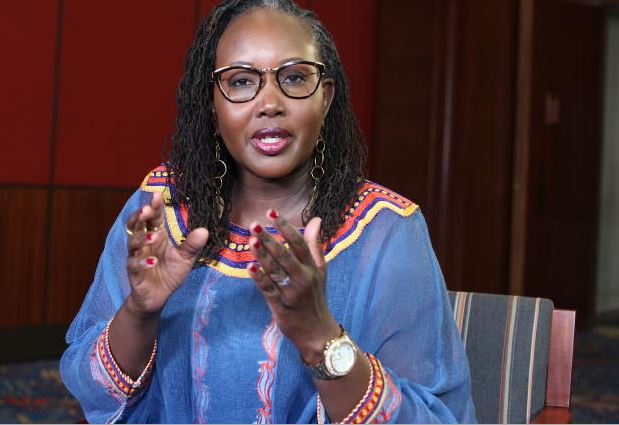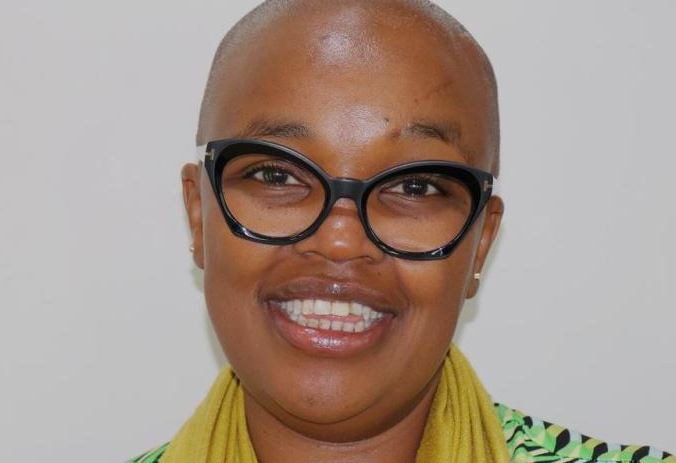
When Jerotich Seii (pictured) and Eva Mutua opted for home-based care after testing positive for Covid-19, they did not foresee the expenses they would rack up in treating the disease.
For the days they were in self-isolation, doctor’s consultation fees, drugs, subsequent Covid-19 tests, personal protective equipment and multiple other hidden costs emerged, leaving a huge dent in their pockets.
Jerotich tested positive on July 22, at a private laboratory run by International Organisation for Migration (IOM) in Nairobi, nearly a week after she self-isolated on experiencing Covid-19 symptoms.
“The IOM lab technicians told me they would forward my results to Ministry of Health,” Jerotich told The Standard.
Days after testing positive, no one from the Ministry of Health got in touch to offer guidance or prescribe home-based care, prompting Seii’s conscious decision to self-isolate.
She did this under the direction of her doctor and with the support of her family and house help.
“I read the Ministry of Health and World Health Organisation (WHO) guidelines and went into home-based care,” Jerotich told The Standard in a phone interview.
Eva, on the other hand, tested positive after returning to Nairobi from Pretoria, South Africa, where she had travelled for treatment and got stuck due to Covid-19 related travel restrictions.

Tested negative
Before leaving Pretoria, Eva (pictured) had tested negative for Covid-19 at a Lancet laboratory in South Africa.
“I had been in self-quarantine because I had been in South Africa for four months, where I had gone for treatment before getting caught up in the lockdown,” she told The Standard.
After writing to the Kenya Medical Practitioners and Dentists Board and certifying that she had met all requirements, Eva was allowed to quarantine at home.
“What I was reading in the press was scary. There were reports that public quarantine facilities were not clean, and that in private facilities there was no guarantee that one would be quarantined for only 14 days,” she says on her decision to self-isolate.
It was during this quarantine period that she developed Covid-19 symptoms. “Between June 28 and 29, about 10 days after my flight to Kenya, my ears started itching and my doctor told me to get an antihistamine, but those were the first signs that I had contracted the virus, along with the accompanying symptoms of fatigue and a headache,” Eva told The Standard.
While she was initially set to be tested on July 2, upon the expiry of her 14-day quarantine, she only managed to test on July 7, that is 19 days after going into self-quarantine.
The next day the results came back positive. Over the next few weeks after testing positive, Jerotich and Eva separately watched with alarm as their expenses soared.
Jerotich says she spent more than Sh60,000 on the initial and subsequent tests for herself, her husband and her house help.
“The cost of home-based care is very high because you pay for everything yourself,” she says.
She has a fourth test in a month’s time, after her last test on August 14 came back positive.
Eva, on the other hand, reveals a long list of expenses she has incurred. “I spent Sh30,000 for the 40 days I was in isolation,” she says.
Other expenses during home-care arose from doctor consultations that were mostly done over the phone. The Health ministry’s guidelines for home-based care require that the patient be in touch with a doctor.
Sh30,000 on consultancy
Jerotich and Eva reckon they spent at least Sh30,000 each on over-the-phone consultations from the time they went into self-quarantine.
They had no option-no one from the Health ministry checked on their progress at home.
“I received my first call from the ministry on the 23rd day since first falling ill. Before that, it was up to me to sort myself out. Even when they called, they didn’t help much,” Jerotich said.
“I got a call from the case worker assigned to me by the Ministry of Health. He was just calling to check up on me and see how I was doing,” says Eva.
At home, the two had to buy antibiotics, malaria drugs, anti-histamines, anti-inflammatory drugs, cough medication, zinc and multivitamins.
Since they had to enhance their diets, they also ended up spending more on food. Eva’s weekly grocery shopping doubled from Sh2,500 to more than Sh5,000.
Home-based care, they say, is not for everyone.
“It works for people like me: single, with my own bathroom and house help, but can you imagine someone who lives with six children in a one-bedroom house in Kibera (slums),” says Eva.
Even having a person on standby to care for a Covid-19 patient at home does not come easy.
For Jerotich, she made an arrangement with her husband to be on standby in case her condition worsened or she needed to be taken to a hospital.
Eva on the other hand, requested her house-help to move in and formed a WhatsApp support group.
Not everyone has such privileges, she says.
Jerotich and Eva have been discharged from self-isolation
They now hope that their respective insurance companies will reimburse the money they spent during home-based care.
Above all, they hope the government will step in to support poor patients self-isolating at home.
 The Standard Group Plc is a multi-media organization with investments in media
platforms spanning newspaper print
operations, television, radio broadcasting, digital and online services. The
Standard Group is recognized as a
leading multi-media house in Kenya with a key influence in matters of national
and international interest.
The Standard Group Plc is a multi-media organization with investments in media
platforms spanning newspaper print
operations, television, radio broadcasting, digital and online services. The
Standard Group is recognized as a
leading multi-media house in Kenya with a key influence in matters of national
and international interest.











